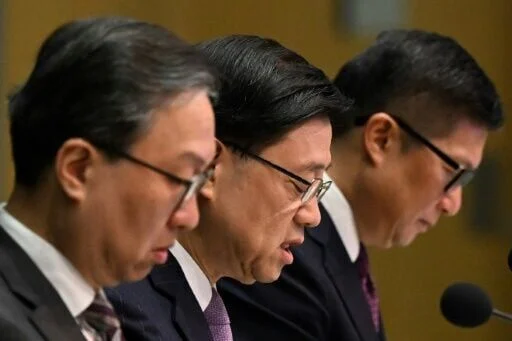The Legislative Council in Hong Kong has open a debate the draft of a new national security law for the Chinese territory after Chief Executive John Lee said it should be passed at “full speed”.
Discussions on the Safeguarding National Security Bill, as it is officially known, began at 11am (03:00 GMT) on Friday morning.
The draft bill, some 212 pages long (PDF), was published online a few hours ahead of the session and includes new laws on treason, espionage, external interference, state secrets and sedition.
Africa Today News, New York understands that those found guilty of treason could face sentences of up to life imprisonment, while those convicted of breaching state secrets or espionage could face 10 and 20 years respectively. Punishments relating to alleged collusion with foreign forces will also be increased, particularly if people are deemed to be working together rather than alone.
Penalties have also been increased for sedition, currently addressed under a colonial-era law – to seven years from two – and will also cover inciting hatred against the Chinese Communist Party and the country’s socialist system of governance.
Read Also: China Condemns Gaza Conflict As ‘Disgraceful To Civilization’
Police will also be allowed to detain suspects for two weeks before charging them, compared with 48 hours currently.
In a statement, Lee urged the passage of the bill at “full speed” to enable the territory to move forward.
Hong Kong “has to enact the Basic Law Article 23 legislation as soon as possible – the earlier the better. Completing the legislative work even one day earlier means we can more effectively safeguard national security one day earlier,” he said in a statement.
“The Hong Kong SAR [Special Administrative Region] can then focus its efforts on developing the economy, improving people’s livelihood and maintaining the long-term prosperity and stability of Hong Kong.”
Previous administrations shied away from introducing Article 23 after 500,000 people took to the streets of the city in 2003 after the government of then Chief Executive Tung Chee-hwa tried to bring in the legislation.

